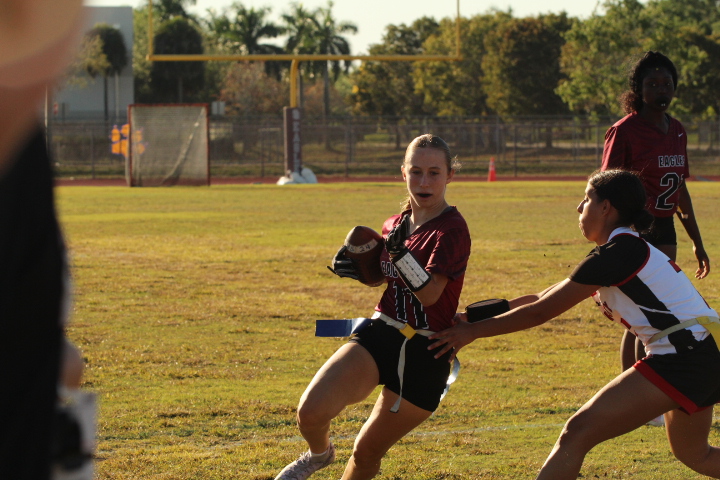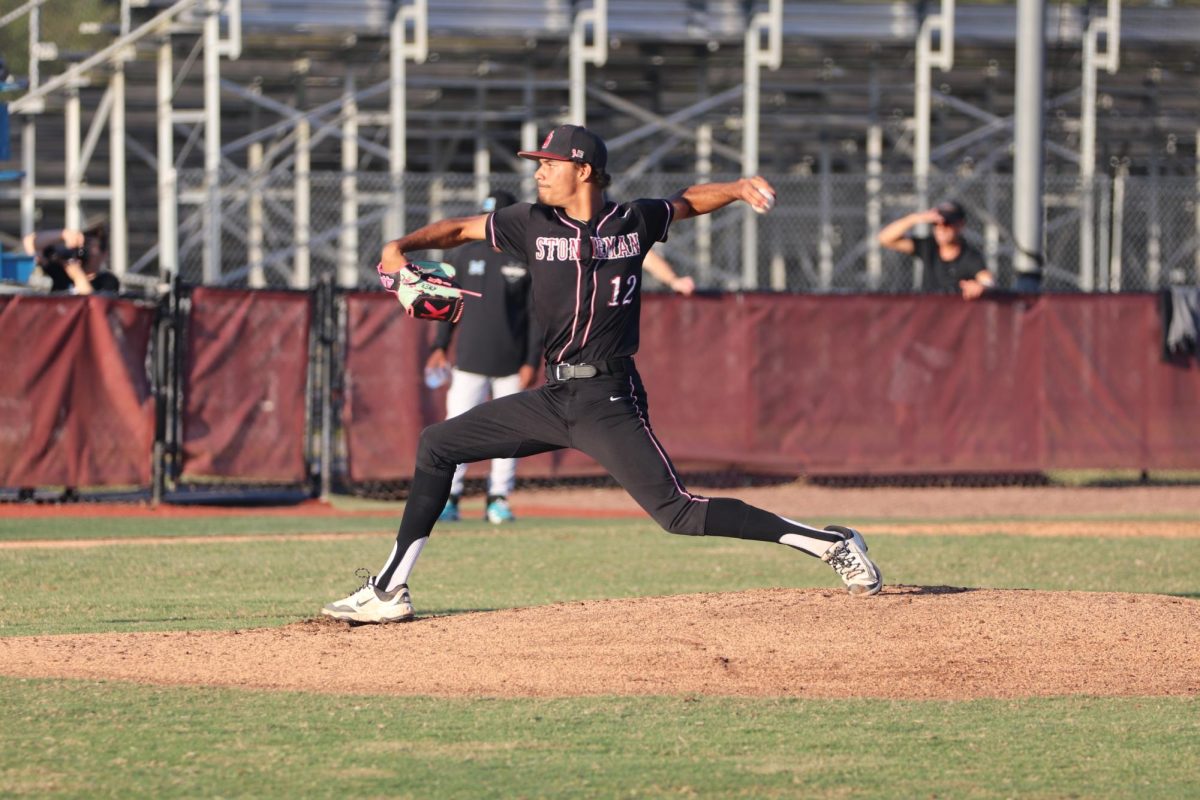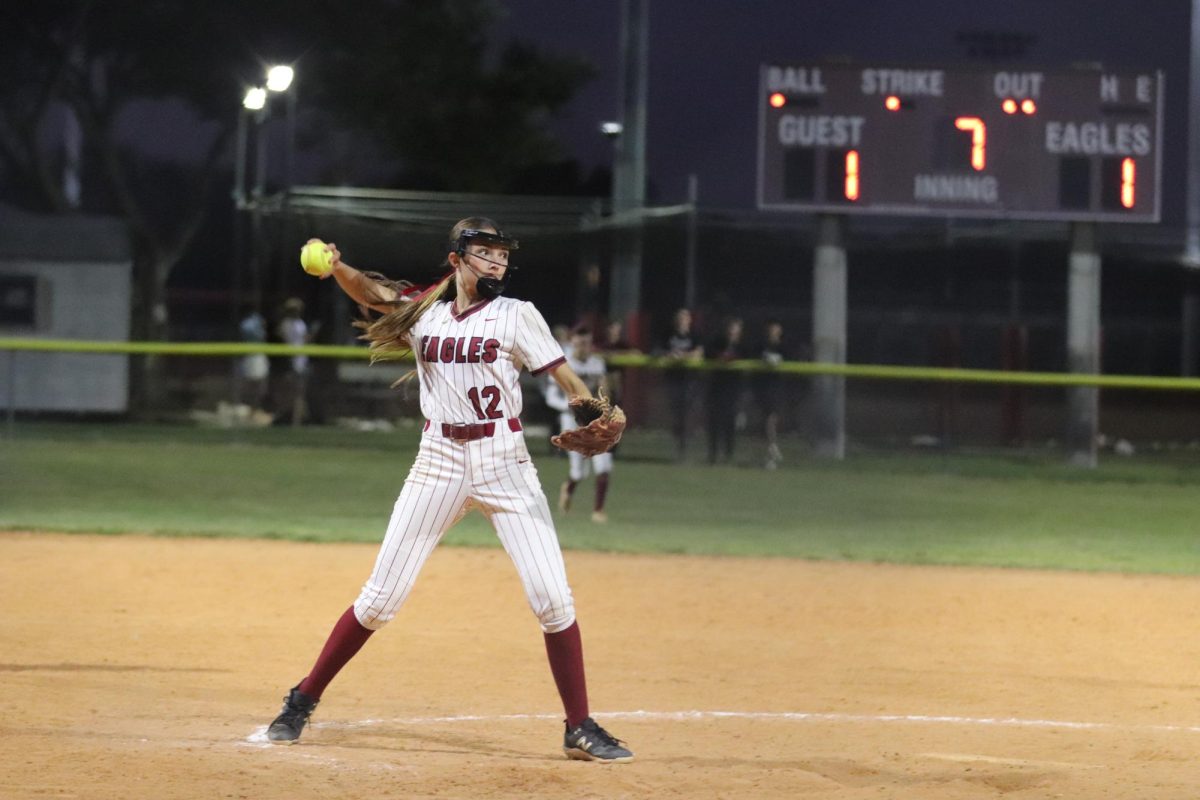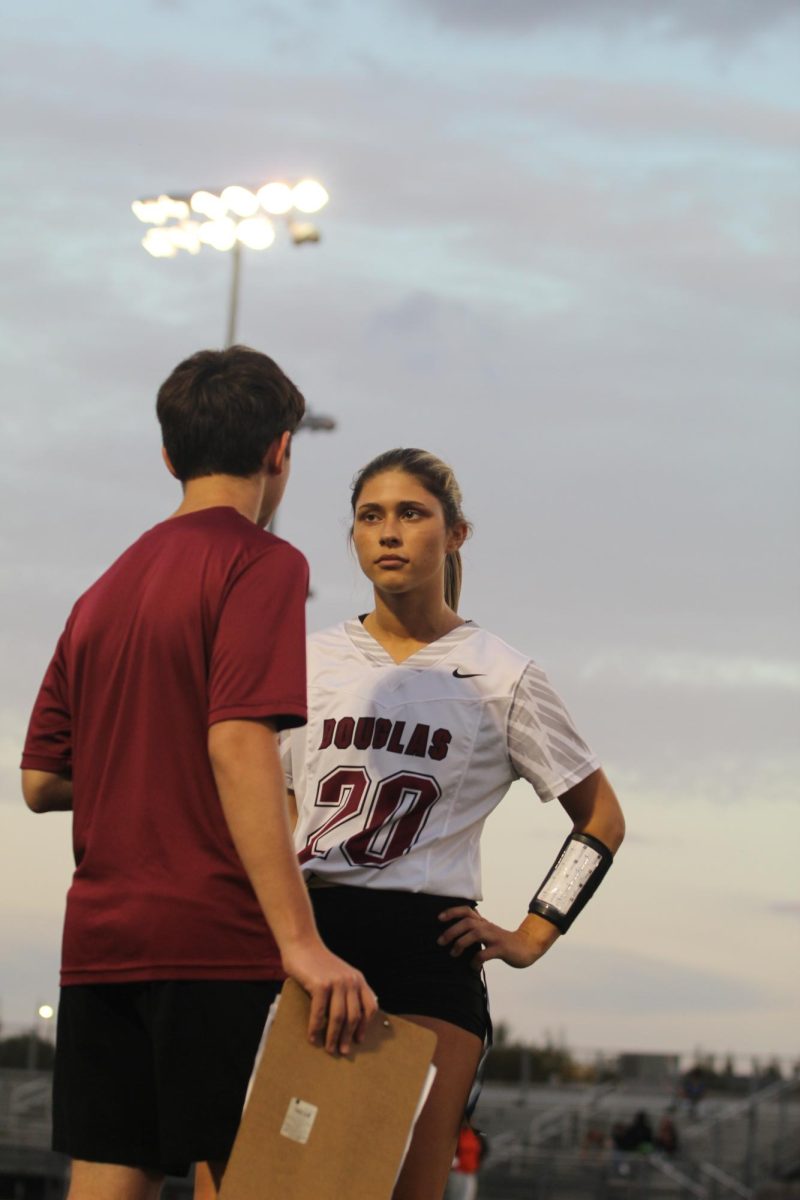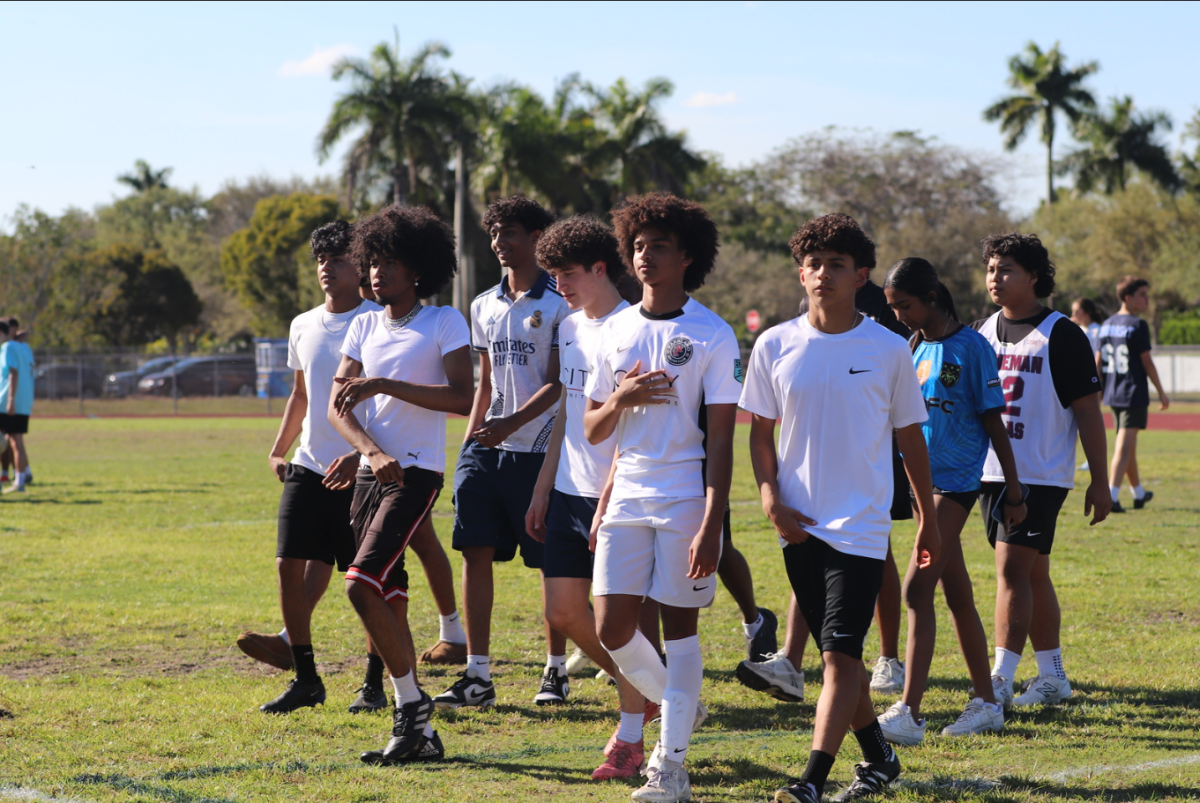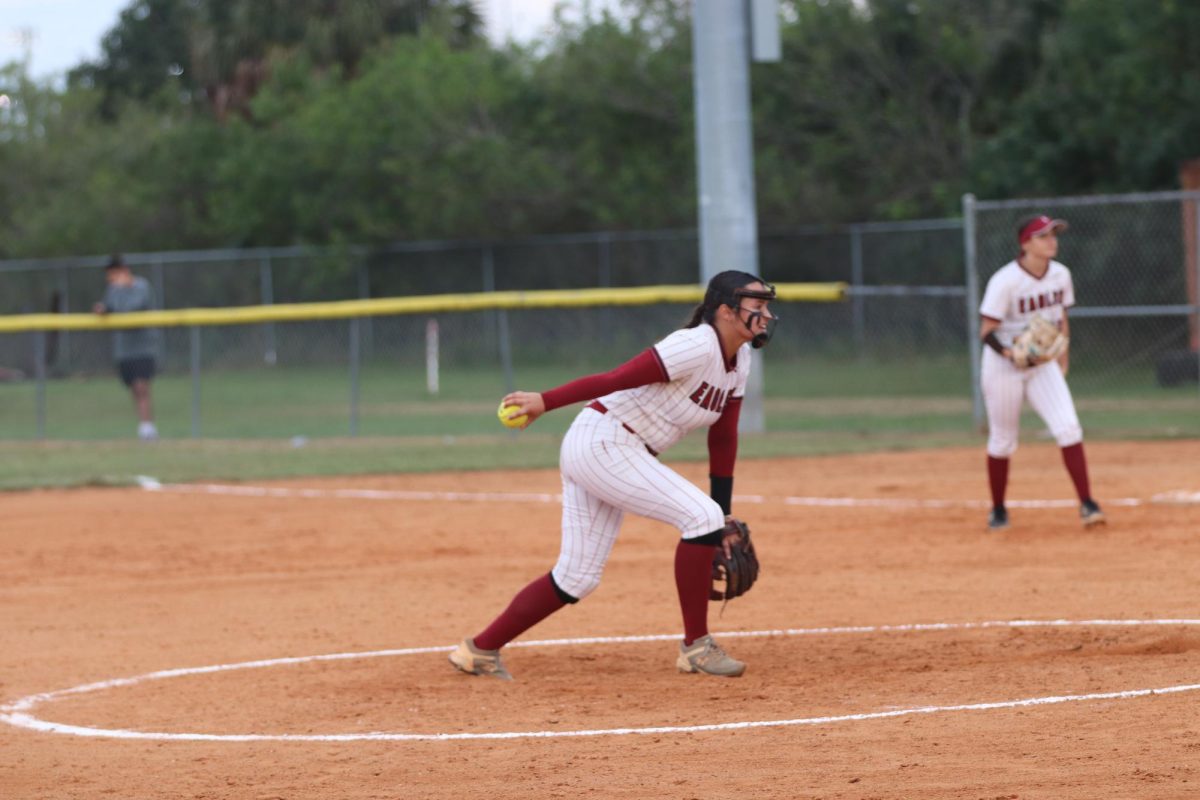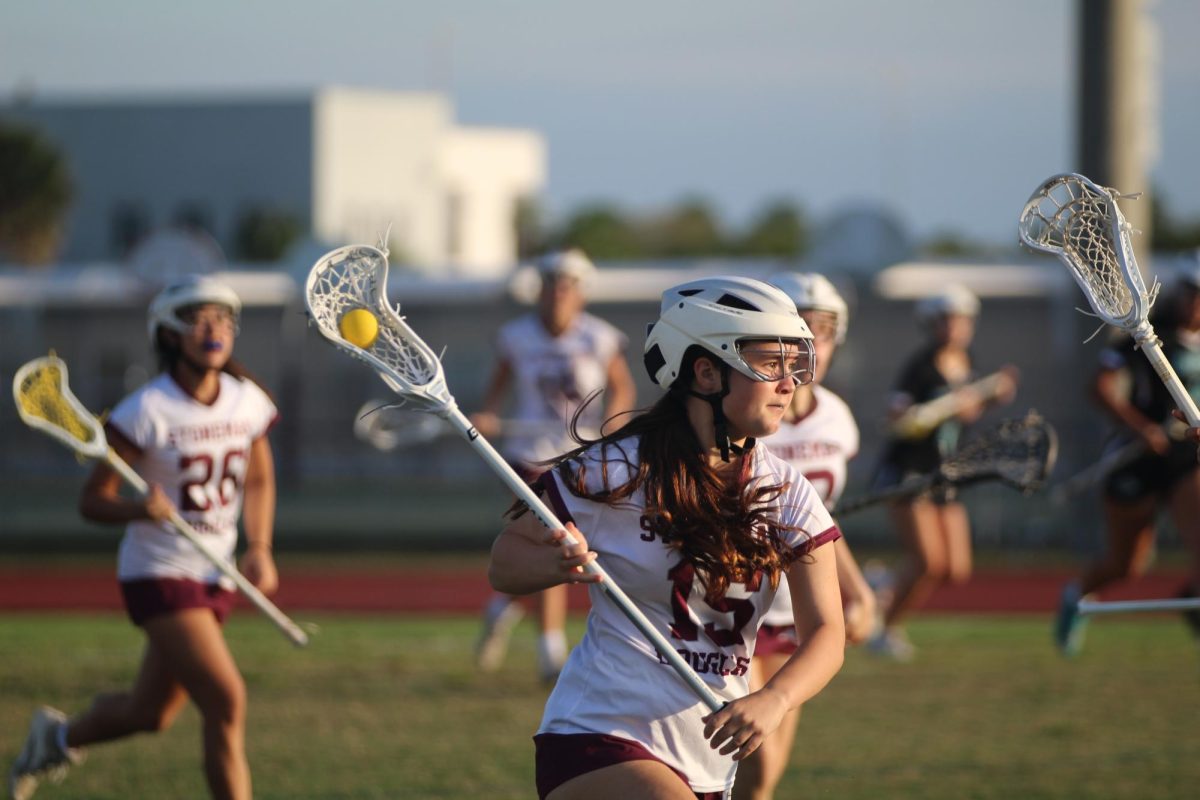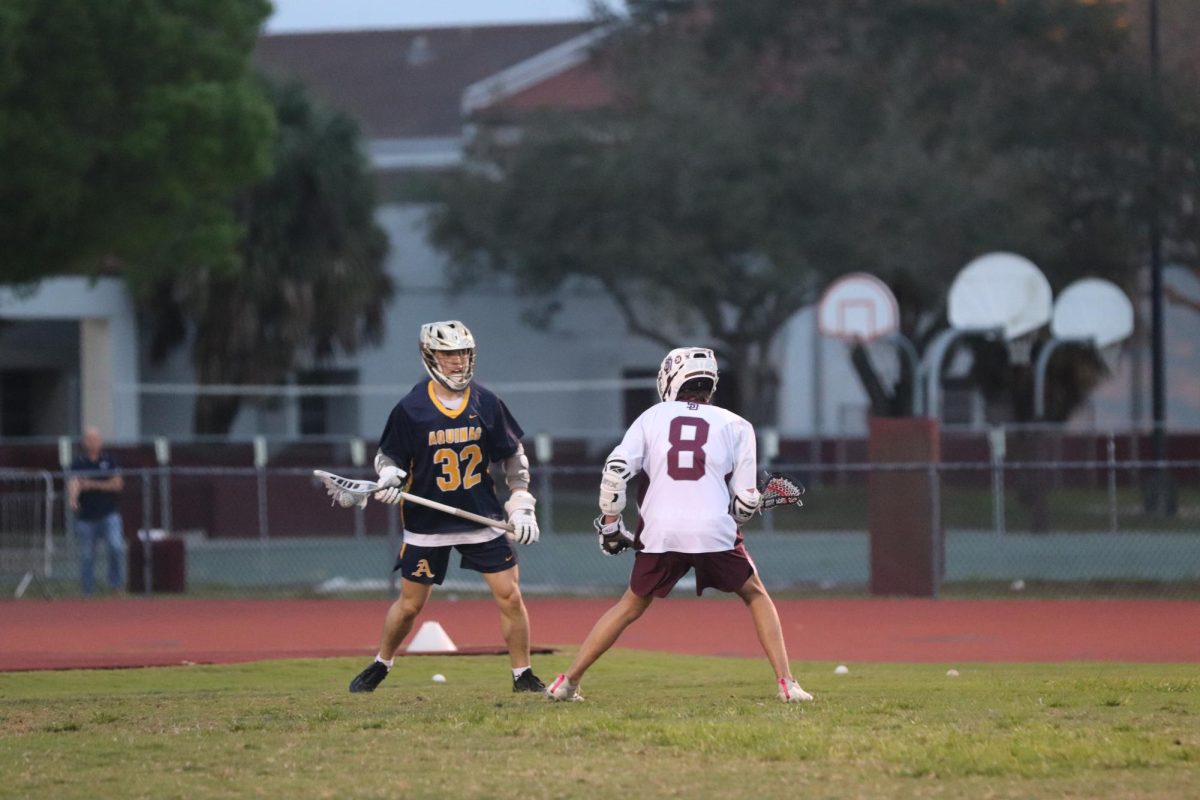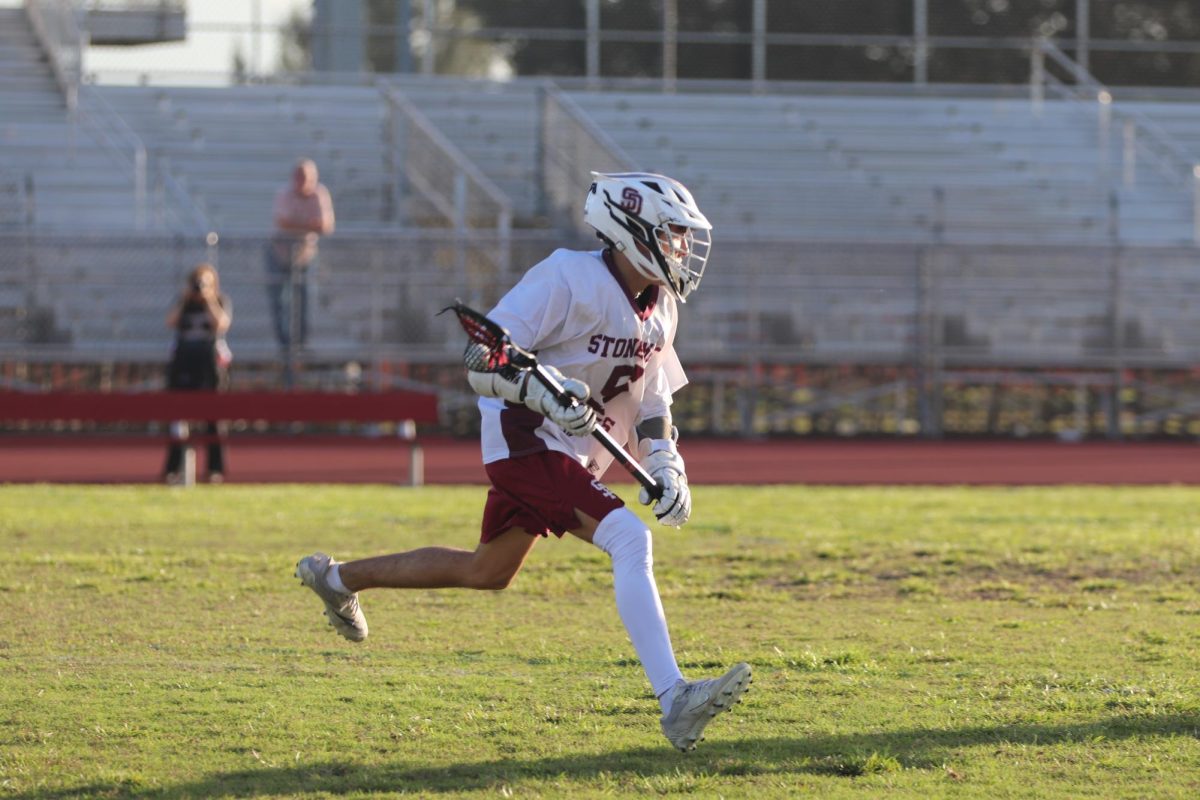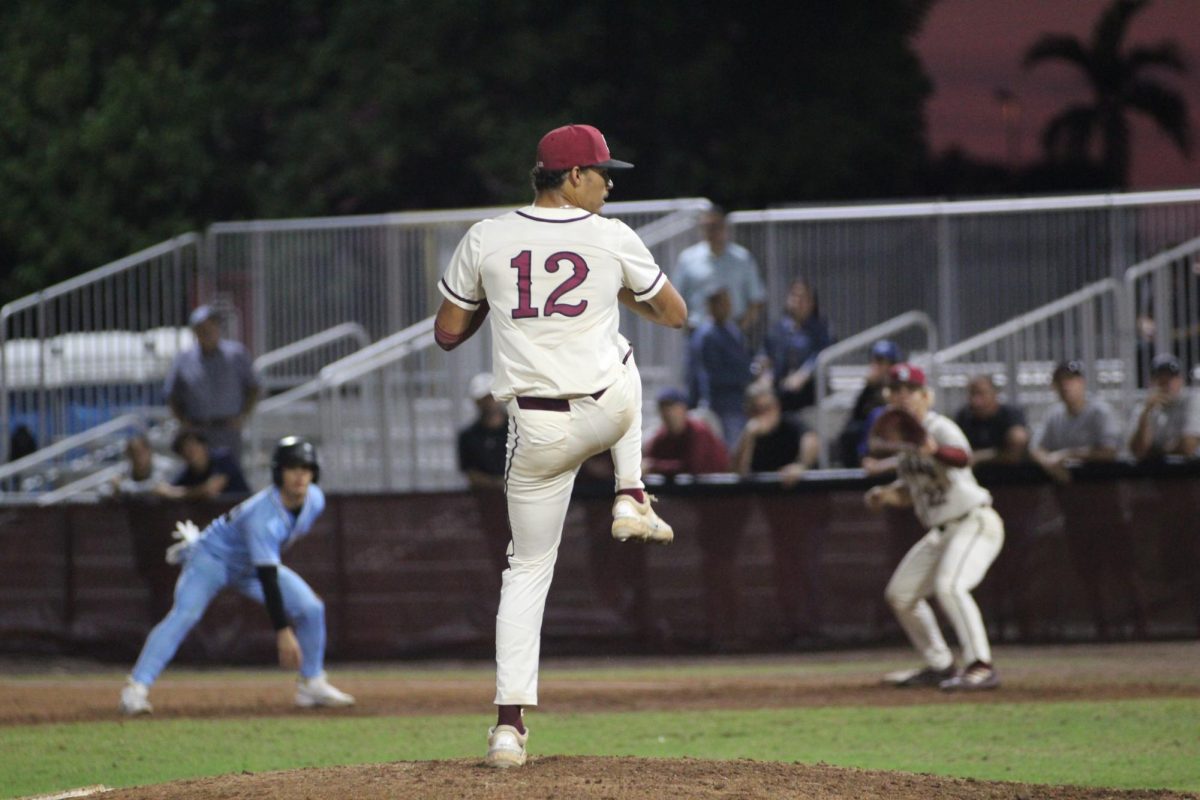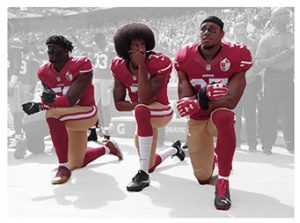
*This story was originally published in the second quarter issue of the Eagle Eye*
First pioneered last year by San Francisco 49ers quarterback Colin Kaepernick, the movement of kneeling during the national anthem has continued to gain national attention. Originally, the controversial protest was rooted in speaking out against police brutality, but its purpose today remains up for debate.
“This is not something that I am going to run by anybody,“ Kaepernick said in an interview with the NFL Media. “I am not looking for approval. I have to stand up for people that are oppressed… If they take football away, my endorsements from me, I know that I stood up for what is right.”
Supporting Kaepernick’s decision, numerous other players have participated in kneeling during the national anthem, which has frustrated some of the American public. Following week three of the NFL season, approximately 180 players kneeled, with at least one individual from each team participating in the protest according to The Washington Post. Opponents of kneeling argue that the act serves as a disrespect to the American flag, the military and the nation.
However, the essential purpose of the athletes’ kneeling has been blurred, as numerous athletes have taken part in the movement for various reasons. After President Donald Trump shared his negative position on the issue, the purpose of the protest has shifted to expressing defiance of the current presidential administration for some. Trump’s statement that those who kneel in the NFL should be fired spurred further support to kneel during the national anthem.
“I disagree with what the president said and how he said it. I think it’s very unbecoming of the office of [the] president of the United States to talk like that to the great people like that. And obviously he’s disappointed a lot of people,” New Orleans Saints quarterback Drew Brees said during a post-game press conference on Sept. 24, 2017.
The NFL’s decision on Oct. 18, 2017 to permit kneeling, but “encourage” standing during the anthem, has brought the question of the ethics of kneeling back to the forefront of American society.
The movement has also spread to high schools across the United States.
In Manatee County, Florida, District Athletic Supervisor Jason Montgomery notified middle and high school parents that players are required to stand for the national anthem. Failure to do so is in violation of the district’s rules.
“[With] regards to standing for the Pledge of Allegiance and the national anthem, the School District of Manatee County complies with both Federal Statute 36 U.S. Code § 301 and Florida Statute § 1003.44. The Code of Student Conduct complies with all statutory requirements that include requiring a student to stand for the Pledge of Allegiance and the national anthem, unless excused in writing by a parent,” Montgomery’s statement read.
This federal statute concerns conduct during the national anthem and instructs that all those who are not members of the armed forces “should face the flag and stand at attention with their right hand over the heart, and men not in uniform, if applicable, should remove their headdress with their right hand and hold it at the left shoulder, the hand being over the heart.”
The issue of kneeling extends beyond high school to the classrooms of local elementary schools. In Wesley Chapel, Florida, Eugenia McDowell’s 6 year old son was inspired by the NFL protests of racial inequalities and injustice during the morning Pledge of Allegiance. While the teacher and his fellow students stood as they recited the pledge, McDowell elected to take a knee.
“What he did was have a difference of opinion. He was not being disrespectful. He was silently protesting and exercising his constitutional right,” McDowell’s mother said in an interview with ABC News.
Despite similar incidents nationwide, there have been no reported issues of kneeling during the anthem in high school sports in Broward County.
“All year this year in the state of Florida and every game when we played, I’ve never seen one person kneel. So it has not been an issue in the state, at least not in Broward County,” Marjory Stoneman Douglas High School football coach Willis May said.
A poll conducted by CNN reveals that 49 percent of Americans support kneeling, while 43 percent say it is wrong, with political views divided severely by race, age and partisanship. May’s opinions on kneeling generally align with the 43 percent of the nation who find kneeling as what senior Peter Forester calls a “show of disrespect to the sacrifices of American soldiers for our country.”
“As a team, we decided to honor the flag and those who fight for the flag,” May said. “We would stand for the Pledge of Allegiance, and we didn’t have any problem with it . . . I was always taught that it was wrong to do anything other than that. I believe it’s something we should do as citizens of the United States.”
The issue, has also inspired students to align themselves with one side or the other, some in support of players kneeling and others believing that those who take a knee are disrespecting the American flag.
“I think the whole thing is ridiculous. I understand and acknowledge that there are racist people in America, and they’re terrible,” junior Patrick Petty said. “But, kneeling for the national anthem doesn’t protest them; it protests the people that have fought for our freedom and the men and women that have served this country proudly.”
However, senior Franklin Lee argues an opposing viewpoint; he strongly stands in support of those who kneel.
“As citizens, we retain the right to peacefully protest and kneeling in the NFL serves that right. The NFL offers players a stage to demonstrate their views on the issue of discrimination. The act of kneeling may shock, but it certainly opens their eyes to the issues that plague our nation today,” said Lee.
The Broward County Athletic Association has yet to comment their stance on kneeling during the anthem, but the Florida High School Athletic Association emphasizes that although “it is customary for everyone in attendance at an athletic event to stand at attention, we acknowledge the freedom each individual has when they choose not to participate in the celebration of our national anthem.”
However, despite the freedom to kneel recognized by high school athletic associations nationwide, some high schools have issued statements requiring students to stand. Waylon Bates, the principal of Parkway High School in Bossier City, Louisiana, illustrated in a letter the disciplinary actions against students who choose to kneel.
“Failure to comply will result in loss of playing time and/or participation as directed by the head coach and principal. Continued failure to comply will result in removal from the team,” Bates said.
In another case of punishment for kneeling, a CNN article reported that two players were kicked off their football team for protesting before a Friday night game in Texas. The boys were ordered by their coach to strip down their uniforms and exit the field.
Despite strict consequences at other schools, “The BCAA has never really talked about [kneeling] with the coaches of Broward County. So it is not really an issue for us to have to talk to about it all with our kids,” May said.
Regardless, both the BCAA and FHSAA in their respective handbooks emphasize the importance of sportsmanship and ethical conduct. The FHSAA requires student-athletes and coaches to to “adhere to the fundamental values of honesty, integrity, respect, caring, cooperation, trustworthiness, leadership, tolerance and personal responsibility,” as stated in the bylaws of the Florida High School Athletic Association.
As for the Marjory Stoneman Douglas High School varsity football team, the players unanimously agreed that they do not support kneeling whether it has at the highschool level or national NFL stage
Although high school rulings on the issue of kneeling remain in question, the trend of kneeling appears to currently be and continue to be a high-profile issue showcased on the national stage and demonstrated at the local level.

